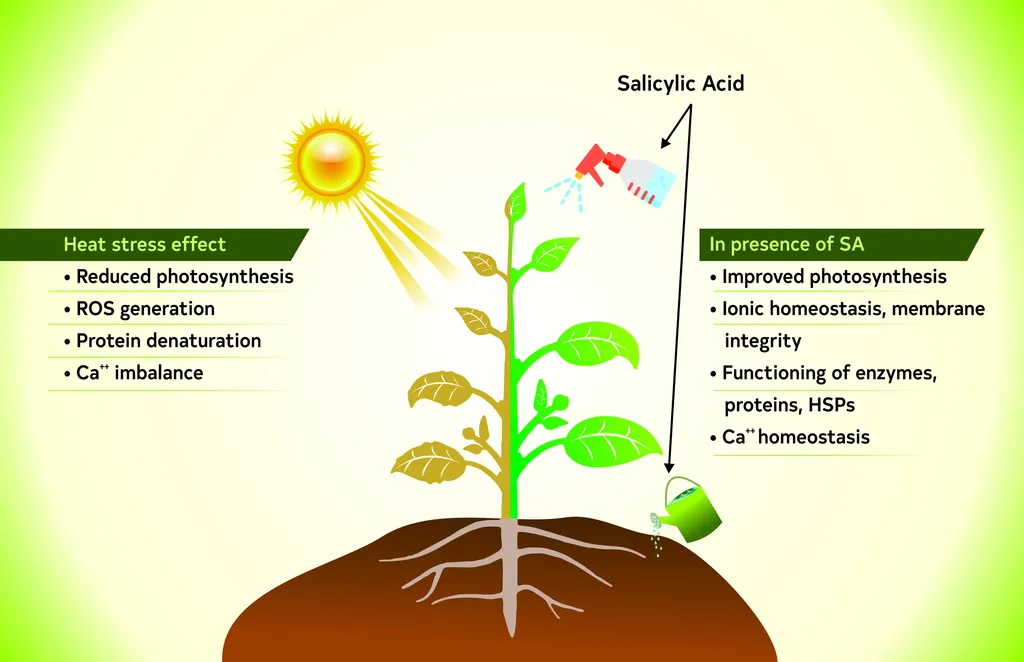In the face of rising global temperatures, scientists are racing to understand and mitigate the impacts of heat stress on vital crops. A recent study published in the *International Journal of Bio-Resource and Stress Management* sheds light on how heat stress affects the flower anatomy of chickpea genotypes, offering promising insights for the agricultural sector. The research, led by H. R. Pipaliya from the Department of Biotechnology at Junagadh Agricultural University in India, explores the potential of salicylic acid (SA) as a protective agent against heat-induced damage.
Chickpea, a staple crop in many parts of the world, is particularly vulnerable to heat stress during its reproductive stage. With global temperatures projected to rise by 1.4 to 5.8°C over the next century, the negative impacts on chickpea production are becoming increasingly severe. The study focused on four chickpea genotypes: ICC-4958, GG-2, ICC-4567, and GJG-5, examining their responses to heat stress under normal and late sowing conditions.
The research revealed that heat stress significantly inhibited pollen function and pollen tube growth, particularly in heat-susceptible genotypes like ICC-4567 and GJG-5. “Heat stress causes heavy yield losses through accelerating flower drop and pod abortion,” noted Pipaliya. “Our findings indicate that the application of salicylic acid at the flowering stage can mitigate some of these adverse effects.”
The study found that exogenous application of SA at the 50% flowering stage in late sowing significantly increased the number of flowers per plant. While there was no significant difference in the number of flowers per plant during normal sowing, the application of 100 ppm SA resulted in a notable increase in all genotypes compared to the control.
The commercial implications of this research are substantial. Chickpea is a crucial crop for global food security, and any advancements in heat stress mitigation can have far-reaching benefits. “By understanding the mechanisms behind heat stress and developing strategies to counteract it, we can enhance crop resilience and ensure stable yields even in the face of climate change,” Pipaliya explained.
The findings suggest that salicylic acid could be a valuable tool in the agricultural toolkit, offering a potential solution to the challenges posed by rising temperatures. As the agricultural sector continues to grapple with the impacts of climate change, research like this provides hope for sustainable and productive farming practices.
This study not only highlights the importance of continued research in plant biology and agronomy but also underscores the need for innovative solutions to safeguard our food supply. As the world adapts to a changing climate, the insights gained from this research could pave the way for more resilient and productive agricultural systems.

